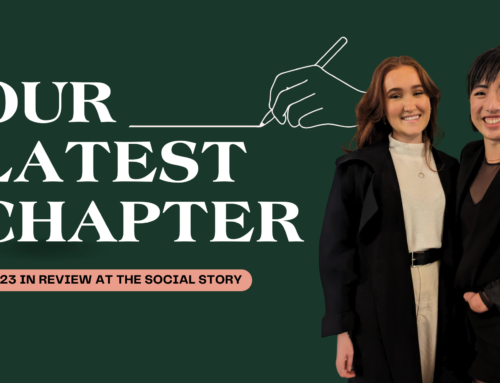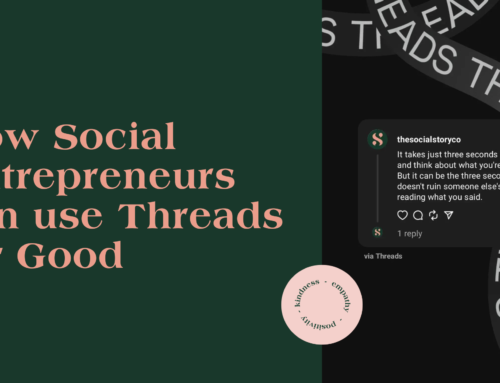Key Takeaways:
– Unfortunately, even the small actions to ban one guy on the social media platforms does need to be recognised as one small step in making social a better place for public discourse – We should not overlook how much work still needs to be done to truly make the platforms truthful and minimise the harm it can cause – We all have to take responsibility in doing so – as individuals, businesses and governing bodies. That’s just how the media has operated.
Well isn’t 2021 off to a crazy start already. After the shit show that was 2020, I was determined not to get my hopes up for this year but I definitely wasn’t anticipating seeing the sort of scenes we have in just the first week. But I guess this is just the world we live in now.
I won’t spend too much time recapping the insurrection for you. I won’t do a better job than the news. And I won’t even talk too much about the implications this has on democracy, racism and the future of America. There are much better, more informed and more invested voices than mine that I will defer to.
What I do have some authority to speak on is social media.
At the time of writing, Facebook Inc. have suspended 45th’s account on Facebook and Instagram until the end of his presidency, Twitter have suspended his account for a couple more hours, Snapchat have turned against him. Ironically, the one platform holding out is TikTok that had faced bans themselves from 45 just months ago.
As Zuckerberg justified in his statement: “We believe the risks of allowing the President to continue to use our service during this period are simply too great.”
What does this mean?
Look, we have to take this all with a grain of salt. We’ve been down this road before. Not even celebrities like Kim Kardashian jumping on a ‘boycott’ trend was enough to snap Zuckerberg straight into action to Stop Hate for Profit.
But this small step is a sign that tech companies like Facebook and Twitter are more willing to recognise their role in the social discourse. Social media has become a beast of its own, accelerating the rate of public discourse beyond what John Stuart Mill ever conceived when writing about the marketplace of ideas.
On the one hand, it has brought on some great positive change that was epitomised by much of what we saw in 2020 to spread good news, stories of heroes, ways to help and change that need organising.
But on the other hand, it’s also bred conspiracy, misinformation and sedition. And for too long, the guys at the top of these companies have sat back and assumed no responsibility – particularly of the bad. Finally stepping up this year to put in some fact checks, to suspend some accounts – however small and isolated these attempts – is not nothing.
So, what’s changed? Why have they finally done something about it?
Well, we go back to Zuck’s statement: “Over the last several years, we have allowed President Trump to use our platform consistent with our own rules, at times removing content or labeling his posts when they violate our policies. We did this because we believe that the public has a right to the broadest possible access to political speech, even controversial speech. But the current context is now fundamentally different, involving use of our platform to incite violent insurrection against a democratically elected government.”
And there is some truth to that. The scenes on the Capitol would shock anyone into action. But it has not escaped our attention that we now look at a Democrat-controlled Congress that are likely to take greater action against tech giants like Facebook and Zuckerberg knows he’ll have to start playing nice. He’ll no doubt be back up against Congressmen and hopefully can bypass some of the simpler questions about what Facebook advertising actually is and start getting the grilling he needs from people like AOC. And I’m sure these actions in good faith will do well when that time comes.
But ok, we’ll allow one, solitary clap on the back for actually doing something this time.
This is not enough
In many ways, this all feels like it’s too little too late. Online hatred did not start and will not end with 45. Sure, he’s more high profile than the conspiracy mums sharing their Facebook posts to their circles. And sure, it’s no doubt perpetrated into society into acts of violent insurrection. But this did not come out of anywhere and a performative action to only now take away his platform must be seen as just a small step in what needs to be done further.
Blocking just one guy does little to address the circles of conspiracy and QAnon that have fuelled his supporters throughout the past four years.
It does not erase the silencing of creators of colour and female-identifying through shadow banning.
It doesn’t change the business model that monetises hate speech, nor the lack of accountability from the Cambridge Analytica scandal. It doesn’t curb the ability for harmful content about suicide or violence to still go viral on the platforms, or stop the trolls and bots and fake accounts.
We need to go beyond this lofty statements of principle and go deeper into what these businesses truly stand for and how they will make fundamental changes to fix their many problems.
But can Zuck save the day?
In short, no. As much as we’d love him, alongside the other tech CEOS to come and take responsibility to have someone to blame, social has never been solely about the technology itself, but the way in which people use it.
And the responsibility of fixing things should not lie on the tech itself. I mean, it’s good, but not that good. Algorithms and machine learning still have its limitations even when they are programmed to be doing the good work. It’s why community managers like us still do the grunt work of combing through comments, figuring out if they violate laws or codes of conduct. It’s as simple as profanity filters will often allow swear words to pass just because someone has made a typo!
But it’s also a very difficult line to toe. What is free speech and what can we censor in the name of public safety? And how do we enforce that? One thing that I would read in the comments section I could find offensive and pose a risk if too many people see it – and even there I still make a choice whether to just hide or to deleted or block the user altogether. And I’m just one community manager looking at one account a couple hours a day.
There will never be one hard and fast rule to solve all of this. I mean, if it was, we’d have been able to achieve world peace offline before the internet even was introduced. But this should not stop us from trying.
Social has never been solely about the technology itself, but the way in which people use it.
What do we do?
Situations like this often make me think about the Fyre Festival. We look at the aftermath and think how on earth did they get that far into the failure? But looking into it, you see how no one spoke truth to power, that you got all wrapped up in the belief of the one guy who said they’d be able to make it work and kept going.
It was a situation I recognised so much from the meeting rooms of advertising agencies. You’d get locked into your way of doing things, the same routine with the client pushbacks and end up going into autopilot with what you put out. So those tone-deaf ads that get put out? I sympathise. But I also believe it means we all have to wake up.
The fact is that truth is not absolute and information needs some sort of freedom which makes it hard to regulate. So it comes down to a bit of self-regulation.
- It comes from the courage to speak our true stories and being in service to our values. When we know why we’re posting and come from a place of authenticity, we can positively contribute to the conversation.
- It comes from being more educated and mindful of social media. This means we check our sources, we’re more conscious of what we’re reading on social and how it doesn’t present the whole picture.
- It comes from our vigilance to speak truth to power, to hold them accountable and take action to reverse the algorithm. So call out brands on social that may not be inclusive, block the ads you don’t want to see, like and comment on creators and small businesses you want to see more of so they don’t get pushed down.
These are scalable actions that we all need to take – as individuals, brands and as larger institutions. It’s the only way that we can take back control of social. Our words have power, our likes have power and with great power, comes great responsibility. May 2021 be the year that we all rise to that challenge.
Header photo by Duané Viljoen from Pexels






[…] – especially Facebook – have taken an unprecedented move against hate speech with the recent banning of Trump’s account. But that won’t be […]